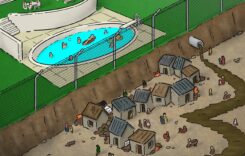Zimbabwe’s Cabinet reviewed and approved a National Policy for Children Without Parental Care on May 7, 2024, providing guidelines on the fundamental needs and rights that need to be met for children in this category to reach their full potential.
Millions of children around the world live in institutions, formal or informal orphanages and foster homes, or are otherwise separated from their parents. Children without parental care in institutions, living with relatives or in orphanages find themselves at a higher risk of exploitation, abuse and neglect, and their well-being is often insufficiently monitored.
This factsheet provides key facts from the new Zimbabwe national policy on children without parental care.
What is the overall goal of the national policy?
The government says the policy aims to create a secure and stable environments for the nurturing of children without parental care, including catering to the unique needs of various vulnerable groups.
Which vulnerable groups children are targeted by the policy?
- Children with disabilities are provided access to specialized alternative care facilities equipped to offer comprehensive help.
- Children who have encountered legal troubles – the policy mandates alternative care programs centred on rehabilitation and reintegration.
- Children who have been living on the streets – given access to alternative care facilities that can offer shelter, medical attention, counselling, and aid in transitioning them to more stable living situations.
- Child survivors of drug and substance abuse – can access alternative care facilities designed to provide specialized treatment, counselling, and recovery support services.
What essential services does the policy guarantee children?
The core objective of the policy is to guarantee that all children in alternative care, are taken care of regardless of the specific location, context, or duration of their placement, and that they are able to access and receive essential services. This includes:
- Education
- Healthcare
- Access to the justice system
- Provision of food, clothing, and shelter
- Acquisition of life skills
- Opportunities for sustainable livelihoods
What laws inform the policy’s mandate?
The policy seeks to ensure that children in alternative care are able to fully enjoy the rights and protections enshrined in Section 81 of the Constitution of Zimbabwe and part 3 and 4 of the Children’s Act.
Constitution of Zimbabwe section 81 Rights of children (1) Every child, that is to say every boy and girl under the age of eighteen years, has the right—
- to family or parental care, or to appropriate care when removed from the family environment;
- to be protected from economic and sexual exploitation, from child labour, and from maltreatment, neglect or any form of abuse;
- to education, health care services, nutrition and shelter;
- not to be detained except as a measure of last resort and, if detained—
- to be detained for the shortest appropriate period;
- to be kept separately from detained persons over the age of eighteen years; and
- to be treated in a manner, and kept in conditions, that take account of the child’s age.
Sources
Veritas
Constitution of Zimbabwe
Children’s Act
Related
Do you want to use our content? Click Here












